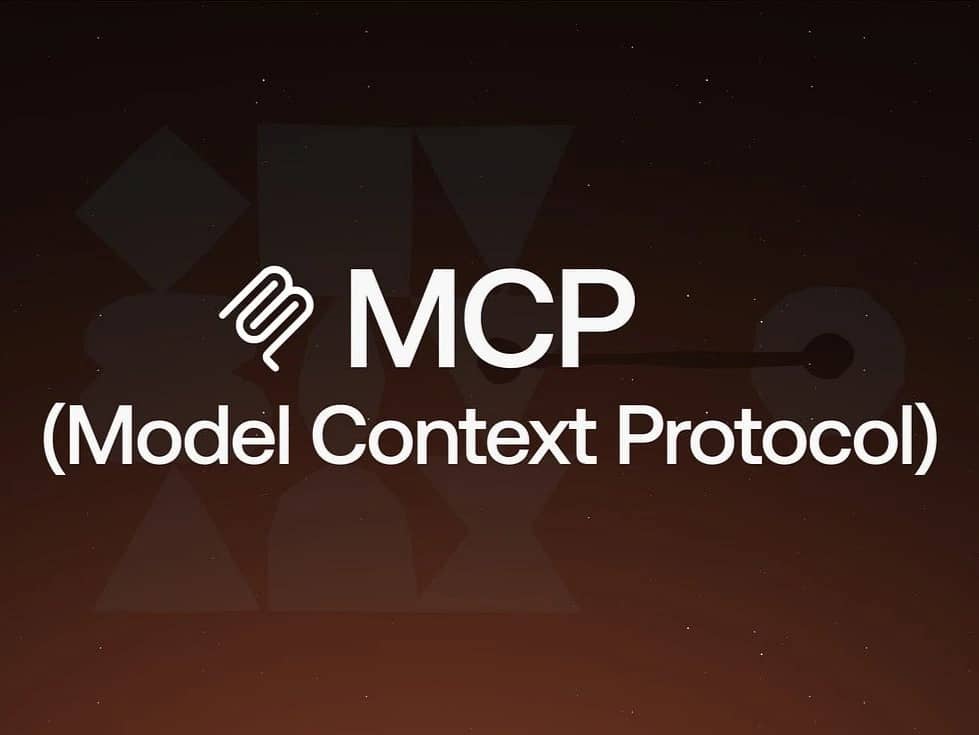Subscribe to wiki
Share wiki
Bookmark
Model Context Protocol
The Agent Tokenization Platform (ATP):Build autonomous agents with the Agent Development Kit (ADK)
0%
Model Context Protocol
Model Context Protocol (MCP) is an open standard designed to facilitate secure, two-way connections between artificial intelligence (AI) assistants and various data sources, including content repositories, business tools, and development environments. Its primary purpose is to enable large language models (LLMs) to access real-world data, execute actions, and generate more relevant and contextually aware responses by standardizing data integration. [1] [2]
Overview
As AI assistants become more widely adopted, a significant challenge has been their isolation from the vast amounts of data stored in information silos and legacy systems. Each new data source typically requires a custom integration, making it difficult to scale AI systems effectively. The Model Context Protocol addresses this by providing a universal, open standard that replaces fragmented integrations with a single, unified protocol, thereby simplifying and enhancing the reliability of data access for AI systems.
Anthropic, PBC, open-sourced the Model Context Protocol on November 25, 2024, with the goal of helping frontier AI models produce more accurate and relevant outputs. The protocol is envisioned as a "USB-C port for AI applications," offering a standardized method for connecting AI models to diverse data sources and tools, much like USB-C connects devices to various peripherals. Key benefits of MCP include a growing list of pre-built integrations, the flexibility for developers to switch between different LLM providers, and the incorporation of best practices for securing data within existing infrastructure. The ecosystem supporting MCP includes over 9 official SDKs, more than 1000 available servers, and over 70 compatible clients. [1] [2] [3] [4] [5]
Technology and Architecture
The Model Context Protocol operates on a client-server architecture, where a host application can establish connections with multiple servers. This architecture comprises several key components:
- MCP Hosts: These are AI tools or applications, such as Claude Desktop or integrated development environments (IDEs), that seek to access data through the MCP.
- MCP Clients: These are protocol clients responsible for maintaining one-to-one connections with MCP servers.
- MCP Servers: These are lightweight programs designed to expose specific capabilities and data sources through the standardized Model Context Protocol.
- Local Data Sources: These include files, databases, and services residing on a user's local computer that MCP servers can securely access.
- Remote Services: These are external systems accessible over the internet, typically through APIs, to which MCP servers can connect.
Anthropic introduced three major components for developers upon the protocol's launch: the Model Context Protocol specification and its associated Software Development Kits (SDKs), local MCP server support integrated into the Claude Desktop applications, and an open-source repository containing various MCP servers. The protocol provides SDKs in multiple programming languages, including TypeScript, Python, Java, Kotlin, C#, and Ruby, to facilitate development.
Core concepts within MCP enable comprehensive interaction between AI and data:
- Resources: Allow servers to expose data and content to LLMs.
- Prompts: Facilitate the creation of reusable prompt templates and workflows.
- Tools: Enable LLMs to perform specific actions through the connected server.
- Sampling: Allows servers to request completions from LLMs.
- Transports: Define the communication mechanisms used by MCP. [1] [2] [3] [4]
Use Cases and Adoption
The Model Context Protocol is designed to connect AI systems with a wide array of real-world data, enabling them to perform more complex and informed tasks. It supports integration with content repositories, business tools, and development environments. Anthropic's Claude 3.5 Sonnet model is particularly adept at building MCP server implementations, simplifying the process for organizations and individuals to connect their datasets with AI-powered tools.
Pre-built MCP servers are available for popular enterprise systems, including Google Drive, Slack, GitHub, Git, Postgres, and Puppeteer. Early adopters such as Block and Apollo have integrated MCP into their systems. Development tool companies like Zed, Replit, Codeium, and Sourcegraph are also leveraging MCP to enhance their platforms. This integration allows AI agents to retrieve more relevant information, better understand the context of coding tasks, and produce more nuanced and functional code with fewer iterations.
Dhanji R. Prasanna, Chief Technology Officer at Block, commented on the significance of open-source initiatives like MCP: "At Block, open source is more than a development model—it’s the foundation of our work and a commitment to creating technology that drives meaningful change and serves as a public good for all. Open technologies like the Model Context Protocol are the bridges that connect AI to real-world applications, ensuring innovation is accessible, transparent, and rooted in collaboration. We are excited to partner on a protocol and use it to build agentic systems, which remove the burden of the mechanical so people can focus on the creative". [1]
Open-Source Nature and Community
Anthropic is committed to fostering MCP as a collaborative, open-source project and ecosystem. Developers can begin building and testing MCP connectors immediately. All Claude.ai plans support connecting MCP servers to the Claude Desktop application. For Claude for Work customers, local testing of MCP servers with internal systems and datasets is supported, with future plans to provide toolkits for deploying remote production MCP servers for entire organizations.
The project encourages contributions from AI tool developers, enterprises seeking to leverage existing data, and early adopters. Community support and feedback mechanisms include GitHub issues for bug reports and feature requests related to the MCP specification, SDKs, and documentation, as well as dedicated discussion forums for the specification and other open-source components. [2] [4] [1]
See something wrong?
The Agent Tokenization Platform (ATP):Build autonomous agents with the Agent Development Kit (ADK)
